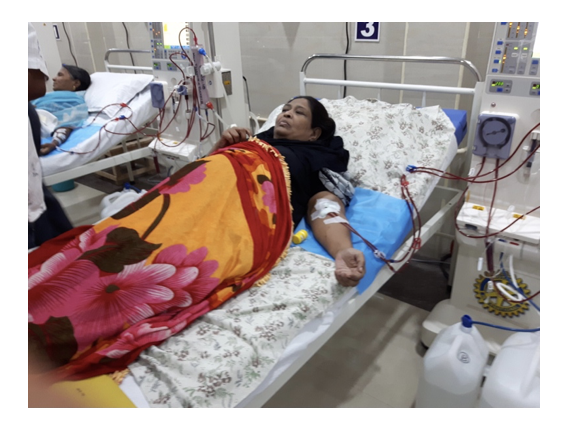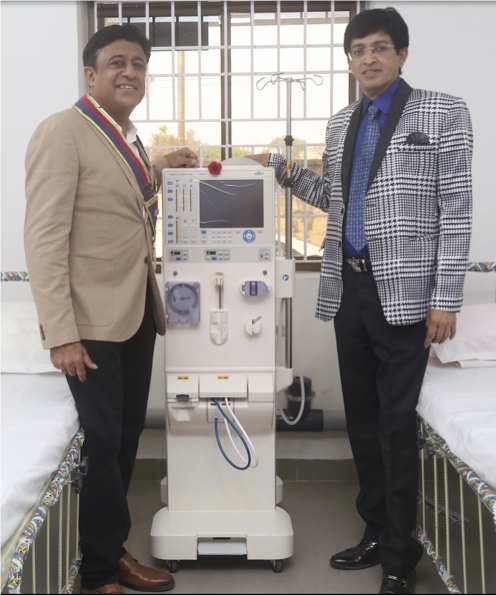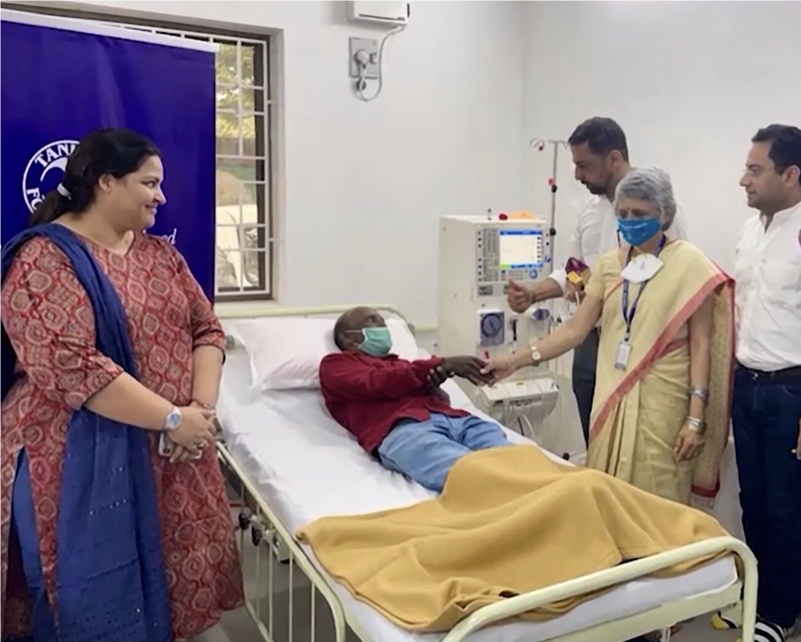
Chronic kidney disease involves the gradual loss of kidney function and for which there is no cure. Eventually, when the kidneys fail completely, CKD inevitably becomes end stage renal disease (ESRD) and only transplantation or dialysis can keep the patient alive. While transplantation may be the preferred mode in terms of offering a better quality of life, financial constraints and the nonavailability of organs make transplantation out of reach for most ESRD patients, especially among the poor. However, dialysis, the most common treatment for ESRD can extend life for as long as 20 years, if done regularly.
In India, the second most populous country in the world, it is estimated that more than 800 people per million suffer from chronic kidney disease, and this figure is increasing yearly. And kidney failure is also the third largest killer, accounting for approximately 250,000 deaths every year. With fewer that 5000 dialysis centers in the entire country, primarily in the private sector and concentrated mainly in cities, it is not surprising that only about 16% of ESRD patients are receiving life saving dialysis. And in the absence of health insurance, this percentage falls to less than 10%. Moreover, private hospitals and dialysis centres charge between US$25 and US$65 per session, and with 3 sessions per week, the cost takes treatment beyond the reach of not only the poor, but also of the middle class population.
In Chennai, the capital and largest city in the southern state of Tamil Nadu, close to 15,000 people suffer from kidney failure and the poorest individuals have virtually no access totreatment. This means that most sufferers with CKD will face certain death once their kidneys inevitably shut down. The Rotary Club of Chennai Capital responded to the need for additional dialysis machines in Tamil Nadu and proposed an ambitious project to provide 10 dialysis machines and related equipment in a subsidized dialysis centre in Porur, a grossly underserved area in terms of treatment for chromic kidney disease. Even with a few hospitals around, for the local poor and downtrodden patients, the cost of treatment is prohibitively expensive.
Once the plan for available and accessible dialysis was put together, the Rotary Club of ChennaiCapital knocked on the doors of Rotary clubs near and far for contributions to the project worth over US$118,000. Within only a few months, the necessary funds were secured from several Rotary Clubs in India, as well as from clubs in Canada, the US, Australia, and Pakistan, totaling US$85,600. Contributions from Designated District Funds and funds from matched contributions plus the World Fund completed the total required. The Rotary Club of Cataraqui-Kingston was pleased to be the International Partner in this project and contributed US$4725.
The Porur Dialysis Project was completed in in the Spring of 2022 and the Sathyalok Free Dialysis Center was inaugurated on March 21, 2022. The centre will be managed by the Tanker Foundation (Tamil Nadu Kidney Research Foundation), a registered nonprofit charitable trust that aims to provide subsidized dialysis and financial assistance to the underprivileged with kidney disease. It is expected that more than 2500 kidney patients will benefit from treatment in this center every year. This project clearly demonstrates how Rotary – through a Global Grant and through the global relationships established within our Rotary family – can serve to change AND SAVE lives in accordance with our humanitarian goals.



